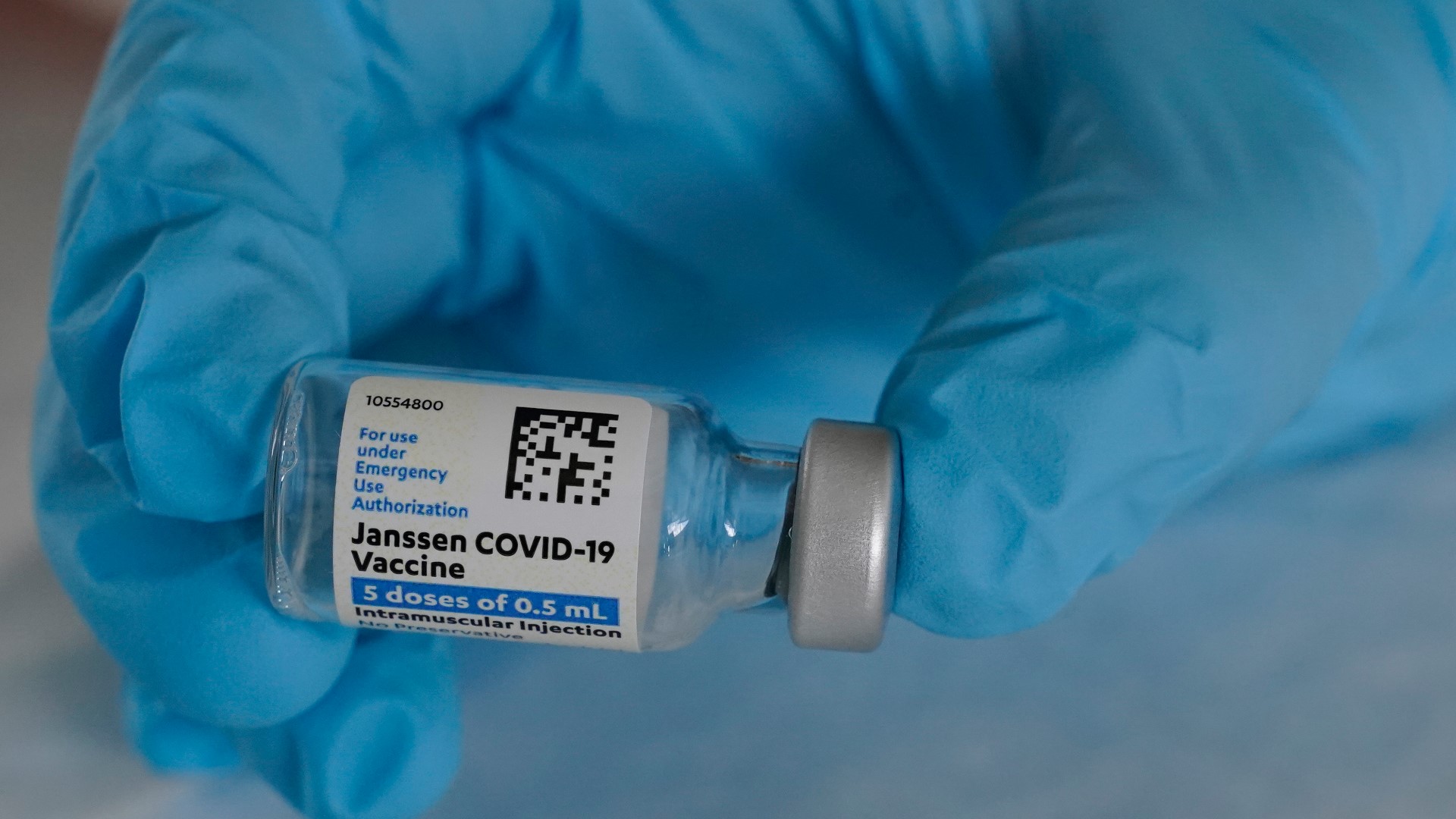NEW YORK — With a green light from federal health officials, many states resumed use of the one-shot Johnson & Johnson coronavirus vaccine on Saturday. Among the venues where it was being deployed: the Indianapolis Motor Speedway.
Among the other states ordering or recommending a resumption, along with Indiana, were Arizona, Colorado, Connecticut, Louisiana, Maine, Massachusetts, Michigan, Missouri, Nevada, New York, Tennessee, Texas and Virginia.
Those moves came swiftly after U.S. health officials said Friday evening that they were lifting an 11-day pause on vaccinations using the J&J vaccine. During the pause, scientific advisers decided the vaccine’s benefits outweigh a rare risk of blood clot.
“The state of New York will resume administration of this vaccine at all of our state-run sites effective immediately,” Gov. Andrew Cuomo said in a statement Saturday morning.
“The vaccine is the weapon that will win the war against COVID and allow everyone to resume normalcy, and we have three proven vaccines at our disposal,” Cuomo said, urging New York residents to take whichever one is available to them first.
“The sooner we all get vaccinated, the sooner we can put the long COVID nightmare behind us once and for all,” he said.
The Indiana Department of Health announced resumption of a free COVID-19 mass vaccination clinic Saturday at the Indianapolis Motor Speedway, offering the J&J vaccine to anyone 18 or older. The clinic will be operating at least through April 30, when there will be a family vaccination day at which 16- and 17-year-olds also can be vaccinated.
"I can’t think of a better way to welcome the month of May in Indiana than getting your vaccine this week at the Yard of Bricks,” said Dr. Chris Weaver, chief clinical officer for Indiana University Health, which is partnering with the state in running the speedway clinic.
By early afternoon, 1,415 doses had been administered at the speedway, the Indiana Health Department said.
Virginia health officials also told providers to immediately resume their use of the J&J vaccine.
“This extra scrutiny should instill confidence in the system that is in place to guarantee COVID-19 vaccine safety,” said Dr. Danny Avula, the state’s vaccine coordinator. “As with any vaccine, we encourage individuals to educate themselves on any potential side effects and to weigh that against the possibility of hospitalization or death from COVID-19.”
Avula received the J&J vaccine himself on April 1.
Missouri officials made a similar announcement, saying providers with J&J vaccine in stock can immediately begin administering it and that shipments from the federal government will resume next week.
Just over 105,000 doses of J&J had been administered in Missouri before the pause.
In Michigan, where local health departments have a key role in vaccination decision-making, the state’s chief medical executive, Dr. Joneigh Khaldun, recommended resuming use of the J&J vaccine.
In Los Angeles County, the nation's most populous county, public health officials told vaccine providers they could resume administering J&J doses on Saturday, as long as they provided an updated fact sheet to recipients.
Dr. Paul Simon, chief science officer for the county’s Department of Public Health, said the county has been working on developing additional materials to explain the clotting issue that prompted the pause.
Those will “include what we think is really important information about what to look for — the signs and symptoms if you were to have this, again, very rare reaction,” he said. “And we are going to underscore that this is a very rare reaction.”
The federal government uncovered 15 vaccine recipients who developed a highly unusual kind of blood clot out of nearly 8 million people given the J&J shot. All were women, most under age 50. Three died, and seven remain hospitalized.
But ultimately, federal health officials decided that J&J’s one-and-done vaccine is critical to fight the pandemic — and that the small clot risk could be handled with warnings to help younger women decide if they should use that shot or an alternative.
___
Associated Press reporters in multiple states across the U.S. contributed to this report.

